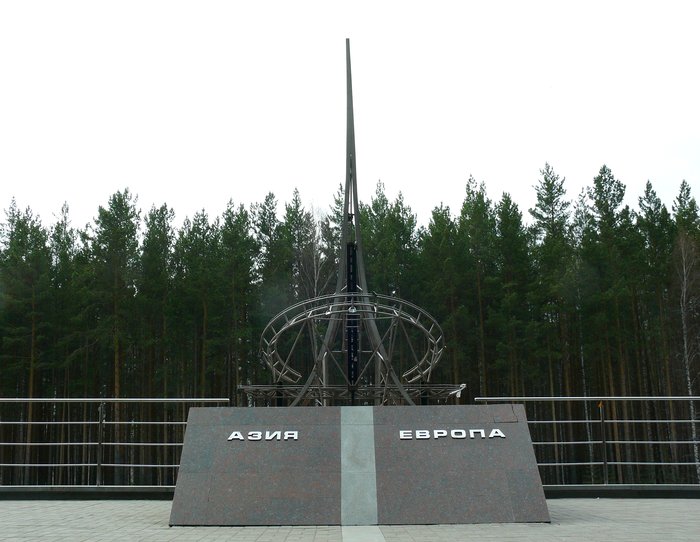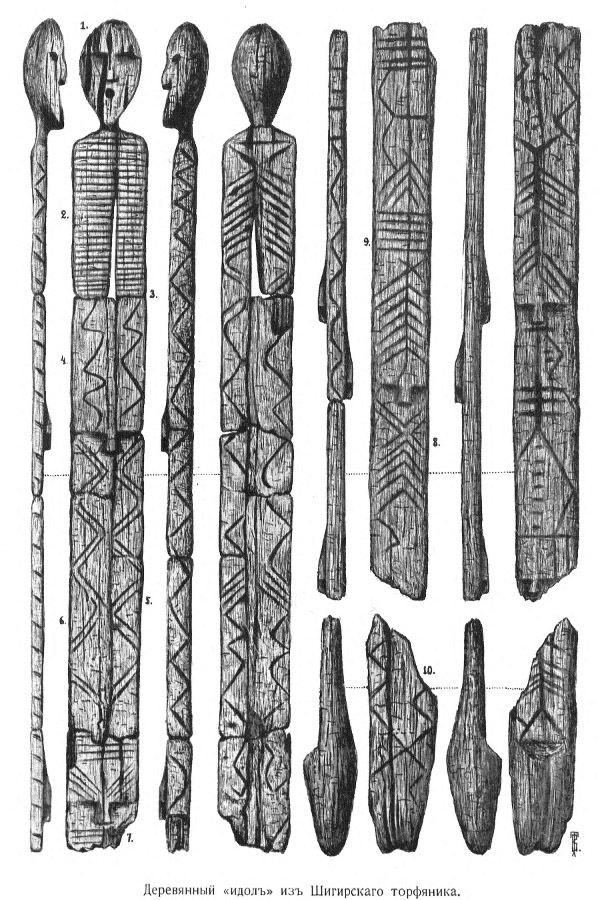|
Sverdlovsk Regional Museum Of Local Lore
The Sverdlovsk Regional Museum of Local Lore (russian: Свердловский областной краеведческий музей) (abbreviated as SOCM) is a museum in Yekaterinburg, Sverdlovsk Oblast, Russia. The museum is one of the oldest in Yekaterinburg, having been founded in 1870. In addition the main branch of the museum, the institution manages several other museums in the region. Description History The museum's history began when in December 1870 a group of notables in Ekaterinburg founded the Ural Society of Natural Science Lovers (UOLE), an organization dedicated to improving education in the area. Though the organization was primarily founded to study the natural history of the Ural Mountains, many of its members had other interests, including meteorology and biology Biology is the scientific study of life. It is a natural science with a broad scope but has several unifying themes that tie it together as a single, coherent field. For instance, al ... [...More Info...] [...Related Items...] OR: [Wikipedia] [Google] [Baidu] |
Yekaterinburg
Yekaterinburg ( ; rus, Екатеринбург, p=jɪkətʲɪrʲɪnˈburk), alternatively romanized as Ekaterinburg and formerly known as Sverdlovsk ( rus, Свердло́вск, , svʲɪrˈdlofsk, 1924–1991), is a city and the administrative centre of Sverdlovsk Oblast and the Ural Federal District, Russia. The city is located on the Iset River between the Volga-Ural region and Siberia, with a population of roughly 1.5 million residents, up to 2.2 million residents in the urban agglomeration. Yekaterinburg is the fourth-largest city in Russia, the largest city in the Ural Federal District, and one of Russia's main cultural and industrial centres. Yekaterinburg has been dubbed the "Third capital of Russia", as it is ranked third by the size of its economy, culture, transportation and tourism. Yekaterinburg was founded on 18 November 1723 and named after the Russian emperor Peter the Great's wife, who after his death became Catherine I, Yekaterina being the Russian for ... [...More Info...] [...Related Items...] OR: [Wikipedia] [Google] [Baidu] |
Sverdlovsk Oblast
Sverdlovsk Oblast ( rus, Свердловская область, Sverdlovskaya oblast) is a federal subject (an oblast) of Russia located in the Ural Federal District. Its administrative center is the city of Yekaterinburg, formerly known as Sverdlovsk. Its population is 4,297,747 (according to the 2010 Census). Geography Most of the oblast is spread over the eastern slopes of the Middle and North Urals and the Western Siberian Plain. Only in the southwest does the oblast stretch onto the western slopes of the Ural Mountains. The highest mountains all rise in the North Urals, Konzhakovsky Kamen at and Denezhkin Kamen at . The Middle Urals is mostly hilly country with no discernible peaks; the mean elevation is closer to above sea level. Principal rivers include the Tavda, the Tura, the Chusovaya, and the Ufa, the latter two being tributaries of the Kama. Sverdlovsk Oblast borders with, clockwise from the west, Perm Krai, the Komi Republic, Khanty–Mansi Auton ... [...More Info...] [...Related Items...] OR: [Wikipedia] [Google] [Baidu] |
Russia
Russia (, , ), or the Russian Federation, is a transcontinental country spanning Eastern Europe and Northern Asia. It is the largest country in the world, with its internationally recognised territory covering , and encompassing one-eighth of Earth's inhabitable landmass. Russia extends across eleven time zones and shares land boundaries with fourteen countries, more than any other country but China. It is the world's ninth-most populous country and Europe's most populous country, with a population of 146 million people. The country's capital and largest city is Moscow, the largest city entirely within Europe. Saint Petersburg is Russia's cultural centre and second-largest city. Other major urban areas include Novosibirsk, Yekaterinburg, Nizhny Novgorod, and Kazan. The East Slavs emerged as a recognisable group in Europe between the 3rd and 8th centuries CE. Kievan Rus' arose as a state in the 9th century, and in 988, it adopted Orthodox Christianity from the ... [...More Info...] [...Related Items...] OR: [Wikipedia] [Google] [Baidu] |
Ekaterinburg
Yekaterinburg ( ; rus, Екатеринбург, p=jɪkətʲɪrʲɪnˈburk), alternatively romanized as Ekaterinburg and formerly known as Sverdlovsk ( rus, Свердло́вск, , svʲɪrˈdlofsk, 1924–1991), is a city and the administrative centre of Sverdlovsk Oblast and the Ural Federal District, Russia. The city is located on the Iset River between the Volga-Ural region and Siberia, with a population of roughly 1.5 million residents, up to 2.2 million residents in the urban agglomeration. Yekaterinburg is the fourth-largest city in Russia, the largest city in the Ural Federal District, and one of Russia's main cultural and industrial centres. Yekaterinburg has been dubbed the "Third capital of Russia", as it is ranked third by the size of its economy, culture, transportation and tourism. Yekaterinburg was founded on 18 November 1723 and named after the Russian emperor Peter the Great's wife, who after his death became Catherine I, Yekaterina being the Russian form of ... [...More Info...] [...Related Items...] OR: [Wikipedia] [Google] [Baidu] |
Ural Society Of Natural Science Lovers
The Ural Society of Natural Science Lovers (abbreviated as UOLE or WOLE) was a Russian organization. Functioning from the mid-19th to early 20th centuries, the organization supported the study of the natural sciences and history of the Urals. Prior to its dissolution in 1929 the organization was joined by a number of notable Russian scientists, educators, and explorers. History The Ural Society of Natural Science Lovers was founded in Yekaterinburg in 1870. At the time Yekaterinburg was a rapidly-growing center of industry and commerce, resulting in the rise of new class of wealthy businessmen. However, the region lacked any institutions of higher education. Seeking to rectify this, on 29 December 1870 a group of around 80 local notables held a meeting to form a private society to promote education, with this concept becoming the Ural Society of Natural Science Lovers.Ural Society of Natural Science Lovers (UOLE). Yekaterinburg: Encyclopedia. 2002. Yekaterinburg: Akademkniga Pub ... [...More Info...] [...Related Items...] OR: [Wikipedia] [Google] [Baidu] |
Ural Mountains
The Ural Mountains ( ; rus, Ура́льские го́ры, r=Uralskiye gory, p=ʊˈralʲskʲɪjə ˈɡorɨ; ba, Урал тауҙары) or simply the Urals, are a mountain range that runs approximately from north to south through western Russia, from the coast of the Arctic Ocean to the river Ural and northwestern Kazakhstan.Ural Mountains Encyclopædia Britannica on-line The mountain range forms part of the conventional boundary between the regions of and |
Meteorology
Meteorology is a branch of the atmospheric sciences (which include atmospheric chemistry and physics) with a major focus on weather forecasting. The study of meteorology dates back millennia, though significant progress in meteorology did not begin until the 18th century. The 19th century saw modest progress in the field after weather observation networks were formed across broad regions. Prior attempts at prediction of weather depended on historical data. It was not until after the elucidation of the laws of physics, and more particularly in the latter half of the 20th century the development of the computer (allowing for the automated solution of a great many modelling equations) that significant breakthroughs in weather forecasting were achieved. An important branch of weather forecasting is marine weather forecasting as it relates to maritime and coastal safety, in which weather effects also include atmospheric interactions with large bodies of water. Meteorological ph ... [...More Info...] [...Related Items...] OR: [Wikipedia] [Google] [Baidu] |
Biology
Biology is the scientific study of life. It is a natural science with a broad scope but has several unifying themes that tie it together as a single, coherent field. For instance, all organisms are made up of cells that process hereditary information encoded in genes, which can be transmitted to future generations. Another major theme is evolution, which explains the unity and diversity of life. Energy processing is also important to life as it allows organisms to move, grow, and reproduce. Finally, all organisms are able to regulate their own internal environments. Biologists are able to study life at multiple levels of organization, from the molecular biology of a cell to the anatomy and physiology of plants and animals, and evolution of populations.Based on definition from: Hence, there are multiple subdisciplines within biology, each defined by the nature of their research questions and the tools that they use. Like other scientists, biologists use t ... [...More Info...] [...Related Items...] OR: [Wikipedia] [Google] [Baidu] |
Shigir Idol
The Shigir Sculpture, or Shigir Idol (russian: Шигирский идол), is the oldest known wooden sculpture in the world, made during the Mesolithic period, shortly after the end of the last Ice Age. The wood it was carved from is approximately 12,000 years old. It is displayed in the Sverdlovsk Regional Museum of Local Lore in Yekaterinburg, Russia. Discovery The sculpture was discovered on January 24, 1890 at a depth of in the peat bog of Shigir, on the eastern slope of the Middle Urals, near the village of Kalata (modern Kirovgrad) and approximately from Yekaterinburg. Investigations in this area had begun 40 years earlier, after the discovery of a variety of prehistoric objects in an open-cast gold mine. It was extracted in ten parts. Professor D. I. Lobanov combined the main fragments to reconstitute a sculpture high. In 1914, archaeologist proposed a variant of this reconstruction by integrating the unused fragments. His reconstruction suggested that the orig ... [...More Info...] [...Related Items...] OR: [Wikipedia] [Google] [Baidu] |
1870 Establishments In The Russian Empire
Year 187 ( CLXXXVII) was a common year starting on Sunday (link will display the full calendar) of the Julian calendar. At the time, it was known as the Year of the Consulship of Quintius and Aelianus (or, less frequently, year 940 ''Ab urbe condita''). The denomination 187 for this year has been used since the early medieval period, when the Anno Domini calendar era became the prevalent method in Europe for naming years. Events By place Roman Empire * Septimius Severus marries Julia Domna (age 17), a Syrian princess, at Lugdunum (modern-day Lyon). She is the youngest daughter of high-priest Julius Bassianus – a descendant of the Royal House of Emesa. Her elder sister is Julia Maesa. * Clodius Albinus defeats the Chatti, a highly organized German tribe that controlled the area that includes the Black Forest. By topic Religion * Olympianus succeeds Pertinax as bishop of Byzantium (until 198). Births * Cao Pi, Chinese emperor of the Cao Wei state (d. 226) * G ... [...More Info...] [...Related Items...] OR: [Wikipedia] [Google] [Baidu] |
Museums In Sverdlovsk Oblast
A museum ( ; plural museums or, rarely, musea) is a building or institution that cares for and displays a collection of artifacts and other objects of artistic, cultural, historical, or scientific importance. Many public museums make these items available for public viewing through exhibits that may be permanent or temporary. The largest museums are located in major cities throughout the world, while thousands of local museums exist in smaller cities, towns, and rural areas. Museums have varying aims, ranging from the conservation and documentation of their collection, serving researchers and specialists, to catering to the general public. The goal of serving researchers is not only scientific, but intended to serve the general public. There are many types of museums, including art museums, natural history museums, science museums, war museums, and children's museums. According to the International Council of Museums (ICOM), there are more than 55,000 museums in 202 countrie ... [...More Info...] [...Related Items...] OR: [Wikipedia] [Google] [Baidu] |





